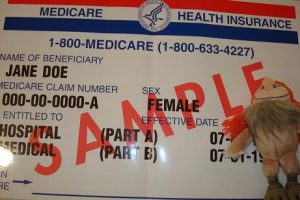Compliance with federal health care laws is not always a straightforward matter for healthcare providers. The fact that payment models are constantly being revised, makes it prudent for them to seek legal advice. Hi, I’m Mitch Winstead with Allstar Senior Benefits. If you have any questions or advice in order to avoid Medicare overpayment problems, we may be able to help you. Our toll-free number is 866-598-8170 or 910-538-4547 or 910-452-1922. If you prefer email, please click these link mitch@allstarseniorbenefits.com Attorneys can provide the practical steps needed to avoid potential pitfalls.
Medicare overpayments
Medicare overpayments are funds paid in excess of the amounts properly payable, as provided under the Medicare statute and regulations. Medical practices should report such overpayments to the Medicare administrative contractors (MAC), who is the agent liable for overseeing claims for payment.
In the event that the overpayment is identified by Medicare, federal law requires that the Centers for Medicare and Medicaid Services (CMS), initiate proceedings to collect these amounts.
In cases where an overpayment of $ 10 or more is identified, the medical contractor will issue an initial demand letter. If payment is not made within 30 days then interest and additional fees will apply. Medical practices that receive a demand letter should ensure that payment is made promptly.
In instances where the overpayment is substantive, entities can request an electronic repayment schedule (ERS), so that payments can be made in smaller installments.
Medicare Recovery Auditors
Medicare recovery auditors are now out there in an effort to detect improper payments. Their job is to investigate billing records and report overpayments to CMS. Therefore medical entities are well-advised to employ a compliance officer to manage the compliance process with Medicare.
Fraud Allegations
The Affordable Care Act stipulates that health care providers must return overpayments within 60 days of identifying them. Medical entities that fail to report overpayments may be liable under the False Claims Act.
Medical practices that are accused of fraud under the False Claims Act, should enlist the services of an experienced health care attorney. These allegations should not be taken lightly, as they are a clear indication that the CMS has already collected sufficient evidence with which to charge you.
Health care attorneys can act capably in your defense, as they have the relevant knowledge of health care laws. They also have previous experience representing clients in similar situations and may be able to have the matter resolved without litigation.
Why do overpayments occur?
Medicare overpayments are often the result of the following:
- Duplicate submission of a claim,
- Billing for services not covered by Medicare,
- Payment to the incorrect payee,
- Payment for services that are medically unnecessary.
Avoiding Medicare overpayment problems
Medical practices can avoid overpayment issues by doing the following:
- Undertaking regular audits of their compliance process. Conducting an internal assessment on a regular basis will help to ensure the accuracy and transparency of the system. It will also make it easier to spot claims with improper payments. In addition, overpayment issues can be identified early, and refunds made promptly.
- Utilize the 60-day reporting window for refunding overpayments. Once an overpayment has been identified, there should be no delay on the part of the medical entity in reporting the find and making the refund within the stipulated time-frame. If you allow the 60-day deadline to expire, then the False Claims Act comes into play.
- Get a second opinion to determine if a claim is an overpayment. An attorney can review and evaluate billings, and conclude if there is, in fact, an overpayment.
- Check if there is a pattern of denied claims. This may be helpful in identifying if you are having a billing problem.
- If your audit turns up anything that is incorrect, make sure to put the relevant actions in place to have it corrected.
Mitch Winstead, Allstar Senior Benefits Our toll-free number is 866-598-8170 or 910-538-4547 or 910-452-1922. If you would like to email us, please click this link mitch@allstarseniorbenefits.com







